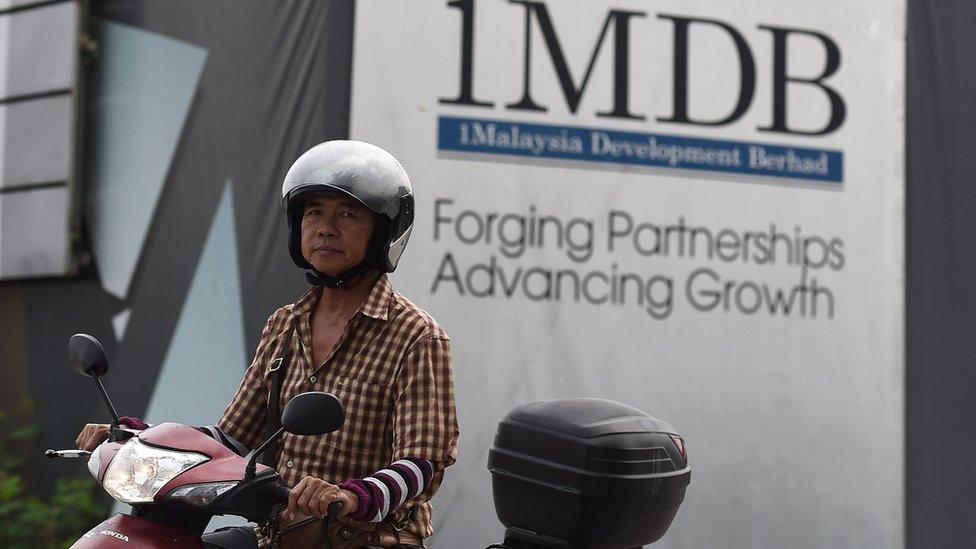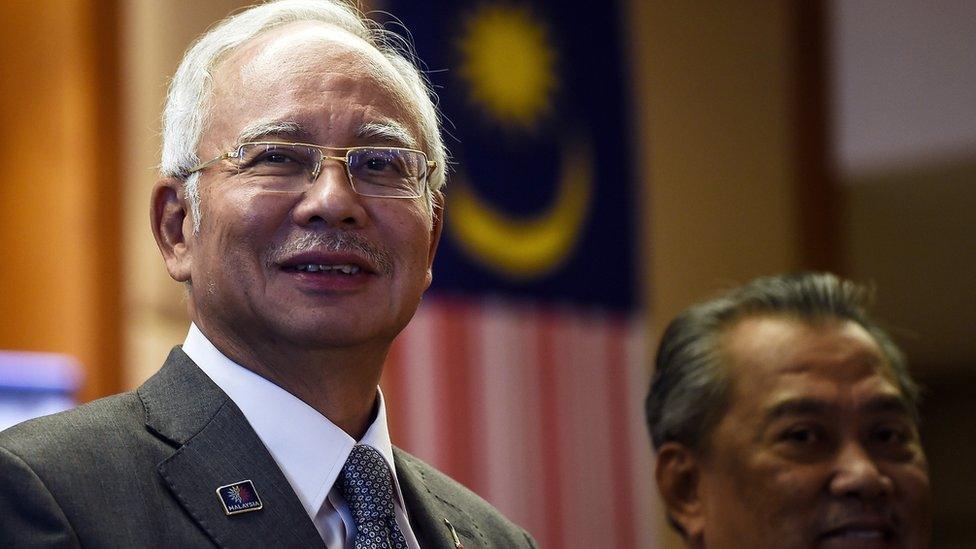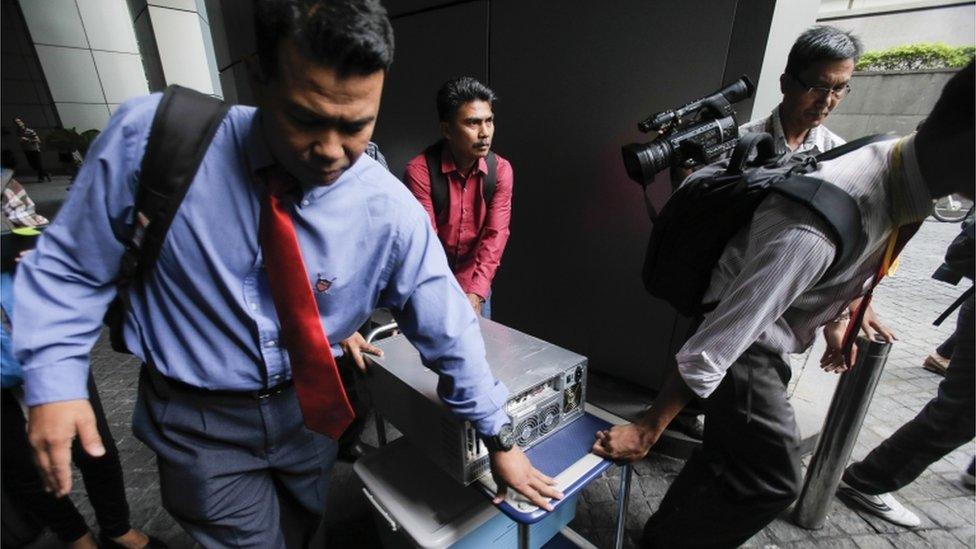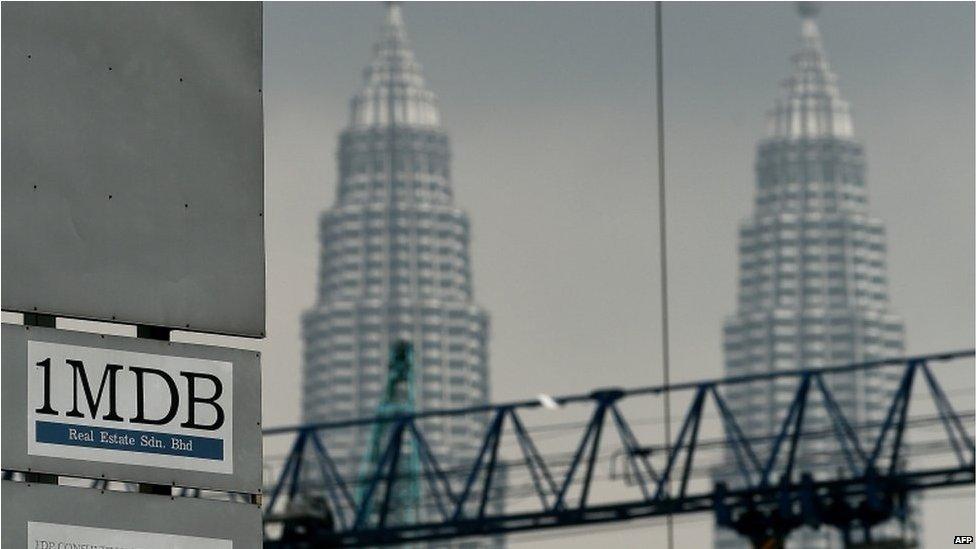Malaysia's 1MDB in China power deal that's moving markets
- Published

Malaysian state fund 1MDB has $11bn in debt
It's rare to see the Malaysian ringgit rise against the US dollar - especially given its performance this year - down some 18%.
Even more curious that it happened while regional currencies like the Indonesian rupiah and Thai baht continued to fall.
Research houses are also upgrading their forecasts for Malaysia's stock markets and the economy.
So what's driving all this positivity?
Well, in part it is thanks to the sale of the energy assets at one of Malaysia's most notorious institutions: IMDB.
1Malaysia Development Bhd (1MDB) is a state investment fund set up in 2009 and was supposed to turn Kuala Lumpur into a financial hub. But it is currently on a fragile financial footing.
Now, 1MDB has sold one of it, and Malaysia's, most coveted power assets, Edra Global Energy, to China General Nuclear for $2.3bn (£1.5bn).
"The markets are showing they're pleased with the deal," says Taufik Basir, analyst with Hong Leong securities.
"It's a good thing for Malaysia, it addresses a big chunk of 1MDB's debt issues. It was a good financial decision - making the most of a bad deal. But frankly, what else could they have done?"
Allegations against 1MDB
Recently Malaysia's 1MDB has been in the press for all the wrong reasons.
Most of the headlines about the beleaguered firm this year have been about how much money it owes - some $11bn that it has amassed over the last five years.
Earlier this year, it was entangled in an even bigger mess: hit by allegations that $700m had been transferred to Malaysian Prime Minister Najib Razak's personal bank account from companies linked to 1MDB.
President and Group Executive Director of 1MDB, Arul Kanda Kandasamy, spoke to the BBC's Karishma Vaswani
The man tasked with cleaning up all of this - 1MDB chief executive Arul Kanda - must be feeling mighty happy with himself this week. He called the sale of Edra Global Energy a "vote of confidence in the Malaysian economy."
When I spoke to him in October, he told me that that the fund was in the process of selling off stakes in some of its prized energy assets in an attempt to raise cash and pay down some of its multi-billion dollar debt.
"The value of assets outweigh value of debt," he told me at their office in Kuala Lumpur. "The value of assets can be proven, given bids we've received".
Mr Kanda said the company would start to see a profit sometime next year, after they've sold off some of their key assets.
Chinese stake in Malaysia
1MDB expects the Edra sale to be completed in February 2016 - but the devil is in the detail.
Foreign investors are typically only allowed to own as much as 49% of Malaysian power producers, unless they obtain a waiver from the government.

Prime Minister Najib Razak chairs 1MDB's advisory board and his leadership has been questioned because of his alleged dealings with the firm
It's not clear yet whether the Chinese firm has been given this exemption - but it is buying all of Edra - which makes up 14% of Malaysia's total power assets.
The sale has been criticised by members of the opposition who say it means China will control a big chunk of Malaysia's energy assets and that the price paid for these assets is far less than what 1MDB paid in the first place.
There have always been questions asked about the purpose and performance of 1MDB - which has changed auditors twice since 2009.
Malaysia already has a sovereign wealth fund, Khazanah, which makes investments for the country's national development.
1MDB was set up with similar ambitions by Mr Najib in 2009, who chairs its advisory board and also serves as Malaysia's finance minister as well as prime minister.
Since the scandal broke, calls for the prime minister to step down have been growing from protestors, and even from the high profile former prime minister Mahathir Mohamad, who still holds a lot of influence in the country.
- Published1 October 2015
- Published22 July 2016

- Published9 October 2015
